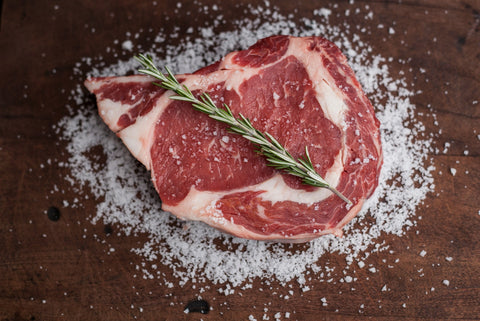Best Natural sources of Zinc

Disclaimer: This content has been produced purely for informational and educational purposes only and is never intended to be used as a substitute for professional medical guidelines, including diagnosis, advice, and treatment.
Table of Content
- Introduction
- Zinc in Diet and Health
- Oysters
- Beef
- Pumpkin Seeds
- Chickpeas
- Lentils
- Yogurt
- Cashews
- Spinach
- Mushrooms
- Conclusion
Zinc, an essential mineral, plays a pivotal role in various bodily functions, including immune function, wound healing, DNA synthesis, and growth and development. It is crucial to maintain adequate levels of zinc in the body to support overall health and well-being. While zinc supplements are available, obtaining this mineral from natural dietary sources is often considered more beneficial due to better absorption and additional nutrients found in whole foods.
Zinc in Diet and Health
Zinc deficiency can lead to impaired immune function, delayed wound healing, loss of appetite, hair loss, and even cognitive dysfunction. Conversely, ensuring an adequate intake of zinc can help prevent these issues and support optimal health. The recommended daily intake of zinc varies by age and gender, with adult males typically needing more than females. It's important to include zinc-rich foods in your diet to meet these requirements.
Check out Vorst Zinc 50mg + Copper 8mg 120 Vegan Capsules Max Strength Supplement
Oysters
Oysters are renowned for their exceptionally high zinc content, making them one of the best natural sources of this mineral. In fact, just a few oysters can provide more than the daily recommended intake of zinc for adults. Additionally, oysters contain other essential nutrients like vitamin B12, copper, and selenium, further enhancing their nutritional value.
Check out Vorst Selenium 90 Capsules 200mcg
Beef
Beef is another excellent source of zinc, particularly in the form of red meat. Lean cuts of beef provide a substantial amount of zinc per serving, along with high-quality protein and various vitamins and minerals. Incorporating lean beef into your diet can help boost your zinc intake while also supporting muscle health and overall nutritional status.
Pumpkin Seeds
Pumpkin seeds, also known as pepitas, are nutrient-dense snacks packed with zinc. These seeds are not only rich in zinc but also provide a good source of plant-based protein, healthy fats, fiber, and other essential minerals like magnesium and iron. Adding pumpkin seeds to salads, oatmeal, or enjoying them as a snack can contribute significantly to your daily zinc intake.
Chickpeas
Chickpeas, a staple legume in many cuisines, are not only rich in protein and fiber but also contain a decent amount of zinc. Incorporating chickpeas into your meals, whether in salads, soups, or curries, can help boost your zinc intake while providing other essential nutrients for overall health.
Lentils
Lentils are another legume packed with zinc, making them a valuable addition to a balanced diet. These versatile legumes are rich in protein, fiber, and various vitamins and minerals, including zinc. Consuming lentils regularly can help meet your zinc requirements while promoting heart health, digestive function, and stable blood sugar levels.
Yogurt
Yogurt is a dairy product that contains zinc along with probiotics, which are beneficial bacteria that support gut health. While yogurt may not be as high in zinc as some other foods on this list, it still contributes to overall zinc intake, especially when consumed regularly as part of a balanced diet.
Check out Vorst supplements containing Probiotic
Cashews
Cashews are not only delicious but also a good source of zinc. These nuts contain a moderate amount of zinc per serving, along with healthy fats, protein, and other essential nutrients. Enjoying cashews as a snack or adding them to stir-fries and salads can help increase your zinc intake while providing various health benefits.
Spinach
Spinach is a leafy green vegetable loaded with nutrients, including zinc. While spinach may not have as much zinc as some other foods on this list, it still contributes to overall intake, especially when consumed in larger quantities. Additionally, spinach provides an array of vitamins, minerals, and antioxidants that support overall health and well-being.
Mushrooms
Certain types of mushrooms, such as shiitake and white button mushrooms, contain notable amounts of zinc. These fungi are not only flavorful but also provide various health benefits, including immune support and potential anti-inflammatory effects. Incorporating mushrooms into your meals can help diversify your diet and increase your zinc intake.
Conclusion
In conclusion, obtaining zinc from natural dietary sources is essential for maintaining optimal health and well-being. Oysters, beef, pumpkin seeds, chickpeas, lentils, yogurt, cashews, spinach, and mushrooms are among the best natural sources of zinc. Including a variety of these foods in your diet can help ensure you meet your daily zinc requirements while reaping the additional nutritional benefits they offer. Prioritizing a balanced diet rich in zinc-containing foods can contribute to overall health, immunity, and vitality.
References and Resources
https://www.healthline.com/nutrition/best-foods-high-in-zinc
